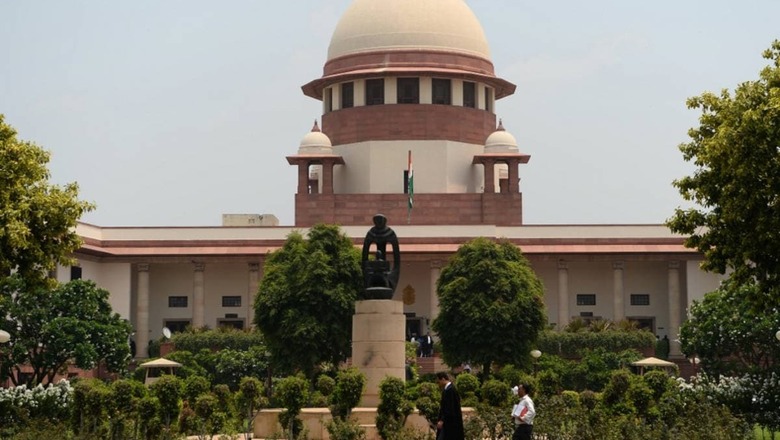Can't Allow Extension of Loan Moratorium Period, Waiver of Interest Not Possible, Says Supreme Court

views
The Supreme Court on Tuesday held that there will be no interest on interest charged from any borrower during the loan moratorium period of six months. However, the apex court also ruled that there cannot be any further extension of the moratorium and that the banks cannot fully waive interest as they are liable to account holders and pensioners.
The verdict was pronounced by a bench of Justices Ashok Bhushan, R Subhash Reddy and MR Shah.
Justice MR Shah while reading out the judgement said, “We have considered reliefs independently. Waiver of complete interest is not possible as banks have to pay interest to account holders and pensioners”.
“There shall be no interest on interest or compensation interest during moratorium period, irrespective of the loan amount. If any such amount has been collected it shall be refunded,” he added.
A batch of pleas was moved before the Apex court last year seeking waiver from interest on interest in respect of EMIs which were not paid by the borrowers after availing the loan moratorium scheme.
The six-month loan moratorium scheme was extended by Reserve Bank of India (RBI) in the wake of the COVID-19 pandemic.
Initially, the RBI on March 27, 2020, had issued the circular which allowed lending institutions to grant a moratorium on payment of installments of term loans falling between March 1, 2020, and May 31,2020, due to the pandemic. Later, the period of the moratorium was extended till August 31 last year.
The petition before the top court sought a direction to declare the portion of an RBI notification, issued on March 27, “ultra vires to the extent it charges interest on the loan amount during the moratorium period…”.
The RBI had, in September 2020, filed an affidavit in the apex court saying that loan moratorium exceeding six months might result in vitiating the overall credit discipline , which will have a debilitating impact on the process of credit creation in the economy.
Separately, the Centre has also filed an affidavit saying that going any further than the fiscal policy decisions already taken, such as waiver of compound interest charged on loans of up to Rs 2 crore for six months moratorium period, may be “detrimental” to the overall economic scenario, the national economy and banks may not take “inevitable financial constraints”.
These affidavits were filed following the top court’s October 5 order asking them to place on record the K V Kamath committee recommendations on debt restructuring because of the COVID-19 related stress on various sectors as well as the notifications and circulars issued so far on loan moratorium.
In its affidavit, the RBI said that any waiver of interest on interest would entail significant economic costs which cannot be absorbed by the banks without serious dent of their finances, and this, in turn, would have huge implications for the depositors and the broader financial stability.
It has also said that the apex court’s interim order of September 4, restraining classification of accounts into non-performing accounts in terms of the directions issued by the RBI, may kindly be vacated with immediate effect.
Earlier, the Finance Ministry had filed an additional affidavit in the apex court on October 2 saying it had decided to waive compound interest (interest on interest) charged on loans of up to Rs 2 crore for a six-month moratorium from individual borrowers as well as medium and small industries.
The Kamath panel had made recommendations for 26 sectors that could be factored by lending institutions while finalising loan resolution plans and had said that banks could adopt a graded approach based on the severity of the coronavirus pandemic on a sector.
Read all the Latest News, Breaking News and Coronavirus News here




















Comments
0 comment